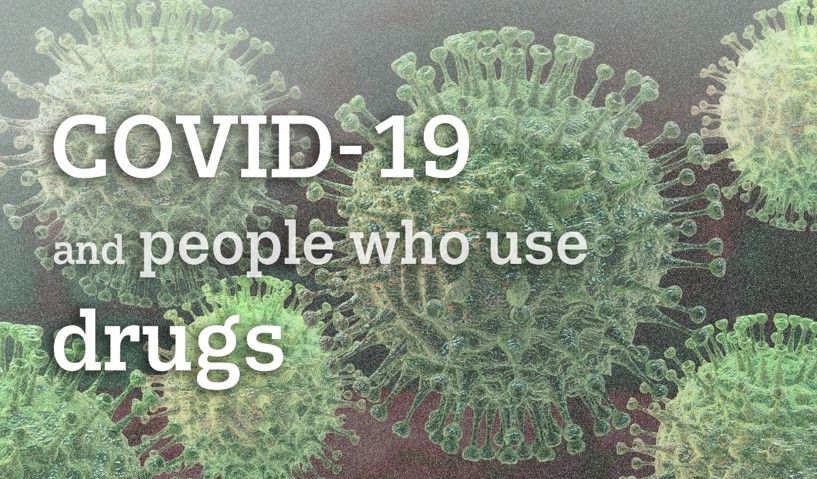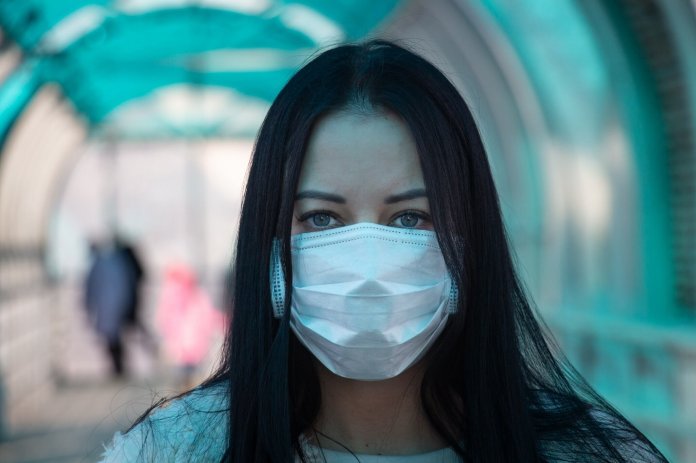Speculations about a link between drug addiction and COVID-19 have grown in recent weeks. The National Institute on Drug Abuse wrote on its blog that people with substance-use disorders, including those who vape, could be especially hard-hit by COVID-19. Everywhere on the internet, fringe theories with and without scientific evidence have popped up making connections between drug addiction and COVID-19.

The world statistics show that deaths and serious illnesses from COVID-19 are concentrated among older people and people with health issues, such as diabetes, cancer, and respiratory conditions. It is, therefore, reasonable to be concerned that lung function or lung disease related to smoking history, such as chronic obstructive pulmonary disease (COPD), could put people at risk for serious complications of COVID-19.
According to the US, Food and Drugs, Many people with substance use disorders have chronic illnesses such as heart, kidney, and liver disease, which are risk factors for developing COVID-19 infection. Depending on their socioeconomic situations, the majority of them receive poor access to high-quality health care. It means fewer vaccinations (flu, pneumonia), fewer medications to treat acute and chronic issues, and unresolved and/or worsening health issues.
Vaping, like smoking, may also harm lung health. While some studies have shown that vaping can lead to lung damage and other health problems, the products have not been on the market long enough to speak confidently about their long-term effects. Having a preexisting condition—especially one related to respiratory health—increases the chances that someone will experience complications from COVID-19. So it’s reasonable to think vaping could play a part. But since scientists can’t say for sure that vaping leads to lung disease or other chronic conditions, it’s also difficult to say whether it opens people up to more risks associated with COVID-19.
People who use opioids face separate challenges to their respiratory health. Since opioids act in the brainstem to slow breathing, their use not only puts the user at risk of life-threatening or fatal overdose. It may also cause a harmful decrease in oxygen in the blood (hypoxemia). Lack of oxygen can be especially damaging to the brain; while brain cells can withstand short periods of low oxygen, they can suffer damage when this state persists. Chronic respiratory disease increases overdose mortality risk among people taking opioids, and thus diminished lung capacity from COVID-19 could similarly endanger this population.
History of methamphetamine use may also put people at risk. Methamphetamine constricts the blood vessels. It is one of the properties that contribute to pulmonary damage and pulmonary hypertension in people who use it. Clinicians should be prepared to monitor the possible adverse effects of methamphetamine use. Its prevalence is increasing in our country when treating those with COVID-19.

Other risks for people with substance use disorders include decreased access to health care, housing insecurity. Also, it includes a greater likelihood of incarceration. Limited access to health care places people with addiction at greater risk for many illnesses. But if hospitals and clinics are pushed to their capacity, it could be that people with addiction—who are already stigmatized and underserved by the healthcare system—will experience even greater barriers to treatment for COVID-19. Homelessness or incarceration can expose people to environments where they are in close contact with others who might also be at higher risk for infections. The prospect of self-quarantine and other public health measures may also disrupt access to syringe services, medications, and other support needed by people with OUD.
We know very little right now about COVID-19 and even less about its intersection with substance use disorders. But we can make educated guesses based on past experience. People with compromised health due to smoking and substance use disorders could find themselves at increased risk of COVID-19. And its more serious complications—for multiple physiological and social/environmental reasons. The research community should thus be alert to associations between COVID-19 case severity/mortality and substance use. Smoking or vaping history, and smoking- or vaping-related lung disease. We must also ensure that patients with substance use disorders are not discriminated against. If a rise in COVID-19 cases places an added burden on our healthcare system.
As we strive to confront the major health challenges of opioid and other drug overdoses—and now the rising infections with COVID-19—NIDA encourages researchers to request supplements that will allow them to obtain data on the risks for COVID-19 in individuals experiencing substance use disorders.
Hathaway Recovery will remain open and accept new patients in need who struggle from addiction.
The ultimate goal of treatment is to achieve sobriety, but getting there varies depending on the individual and their needs. Like the individuals who struggle, each situation is unique.
Hathaway Recovery’s client-centered, holistic treatment, recognizes this. That’s why we integrate a wide range of diverse treatment methods to ensure your best chance at success in sobriety. With our program, you or your loved one will have the opportunity to address substance abuse. Also, you will address mental health needs with a cohesive treatment plan that’s just for you.

Hathaway Recovery Drug & Alcohol Treatment Center
Treatment Center, MD, LCSW, LMFT, ASAM
Web: https://www.hathawayrecovery.com
E-mail: [email protected]
Phone: (909) 971-3333
Fax (909) 498-9898
1042 East Belmont Abbey Lane, Claremont, CA 91711






